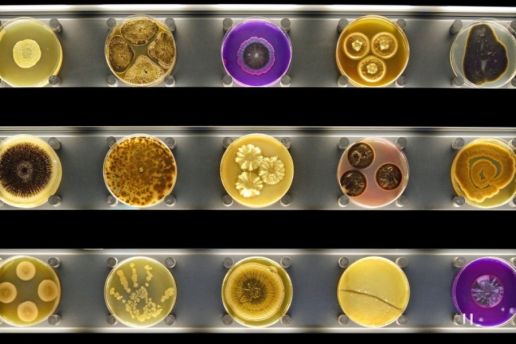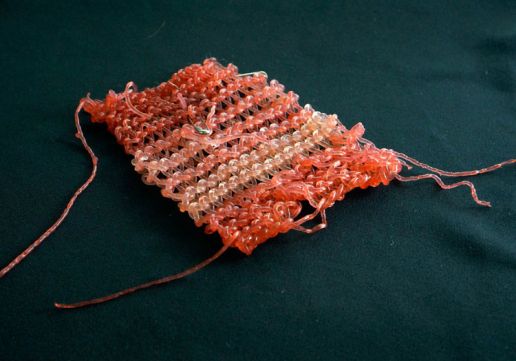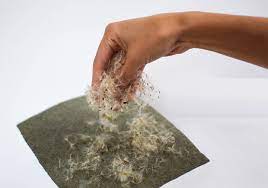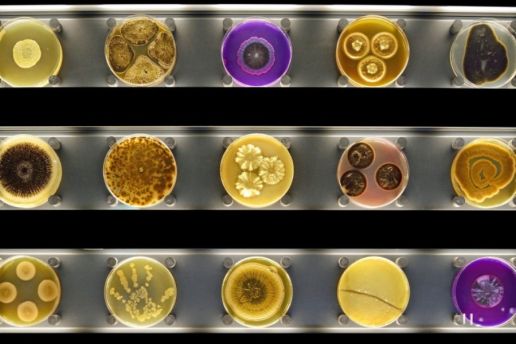Textile Inventions
Textile Inventions You Need To Be Acquainted With In 2022
Textile Inventions You Need To Be Acquainted With In 2022
(If You Are Not Already)
AN INDUSTRY INSIGHT BY FASHNERD FOUNDER MUCHANETA KAPFUNDE.
The race to digitise the textile sector is expected to continue to gain momentum throughout 2022. However, with sustainability still a key theme, the good news is that game-changing innovations are helping a very traditional industry recognise business opportunities that push towards a fundamental shift in industry practices and any future developments.
Reimagining the Textiles System With a New Mindset
No longer held back by conventional processes, more and more textile manufacturers, suppliers, buyers, and designers are now transitioning towards a textile system that allows them to harness better economic, societal, and environmental outcomes. In addition, prioritising the application of new technologies has helped the textile industry take those first steps of progress towards adopting new business models, technological innovation, and radical collaboration.
“Our success depends not only on the work within our own value chain but on disruptive partnerships across a broader textile production and manufacturing ecosystem,” stated Cyrus Wadia, VP Sustainable Business and Innovation at Nike, in the Ellen MacArthur Foundation report “A New Textiles Economy: Redesigning Fashion’s Future”.
As technology continues to have a significant impact on the textile industry, in 2022, make sure you keep an eye on the following innovations from these three game-changing companies:
1. Kelp – One Of The Most Renewable Natural Resources: Algiknit
In the business to make textile production more environmentally conscious, Algiknit offers material options that perform as well as conventional materials.
“The yarn we’re producing today has the look and feel of the natural fibres consumers are familiar with, plus all the makings of a no-compromise conscious material,” said Aaron Nesser, co-founder and CTO of AlgiKnit, in a statement.
Staying ahead of the curve in fabric innovations, Algiknit could effectively bring kelp-based yarn into the mainstream. The startup is currently poised to scale the production of eco-conscious yarns for use by forward-thinking global fashion brands.
With Kelp considered one of the most renewable natural resources globally, the Brooklyn-based material-maker of carbon-neutral, toxic-free textiles has spent the past four years developing technology to produce yarns on a commercial scale. They hope that they will be able to scale production to a point where they will be able to meet growing material demand in time.
2. Freshwater-free Textile Fibres, The Next Alternative: SaltyCo
UK startup, SaltyCO, has come up with freshwater-free textile fibres. Hoping to establish an alternative to freshwater-intensive cotton cultivation, SaltyCO is on a mission to tackle the side effect of wasteful freshwater use by rethinking the system and installing a new category in sustainable textile production.
Acknowledging that there is no single solution to “sustainability”, SaltyCO’s vision is to build a planet-healing supply chain that begins with an approach to regenerative agriculture. Hoping to create the most impact by sourcing their plant material, the materials science company has so far found a suitable salt-tolerant plant for the textile supply chain. They are now researching regenerative cultivation techniques and textile products. The outcome has been BioPuff, a plant-based fibre fill produced in SaltyCO’s laboratory in Scotland.
An alternative to animal and petroleum-based products, BioPuff is made of pure cellulose and has been reported to reduce petroleum by 70% in every jacket impact and save up to 25 litres of fresh drinking water.
3. Built with Biology, Not Oil: Biofabricate
Do you know that we are at the dawn of a new age where we can biodesign and biofabricate? No longer confined to small-scale experiments, biomaterials have garnered interest from well-known brands, like Adidas and Hermès, looking for plant-based alternatives to petroleum.
Recognising the potential of ‘Living Factories’ like Mycelium, Bacteria, Yeast and Algae, is Biofabricate. They are a startup that believes that a sustainable material world is built with biology, not oil. Recognising that there are no shortcuts, Suzanne Lee, founder and CEO of Biofabricate, believes that patience and tenacity by the industry should be a requirement.
“This can be a struggle for many designers – who like fast outcomes. But unfortunately, biology doesn’t work like that”, explained Lee when interviewed by Nextnature.net.
As a new generation of biofabrication and cell agriculture startups continue to set the standard, Biofabricate has become the go-to for those looking to bridge design with biotech intelligently.
In the current landscape, textile inventions are setting the standard by driving the textile industry to understand the facts and participate in the solutions. But, in the end, material innovation is a constant journey, one you should already be on if you aren’t already.
Are you interested in more indepth facts and figures of the new textile economy?
Check out FashNerd.com to follow the journey of the industry or read one of the following blog articles:
Antimicrobial Textiles, Hero or Hype?
The New Textiles Economy, A Catalyst For Transformation?
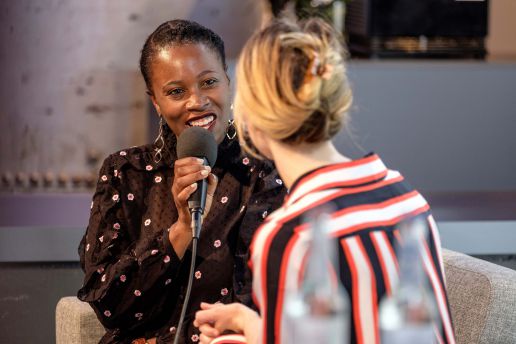
ABOUT THE AUTHOR
Founding editor-in-chief of FashNerd.com, Muchaneta has worked in the fashion industry for over 14 years. She is currently one of the leading influencers speaking and writing about the merger of fashion with technology and wearable technology.
Muchaneta Kapfunde | editor@fashnerd.com


